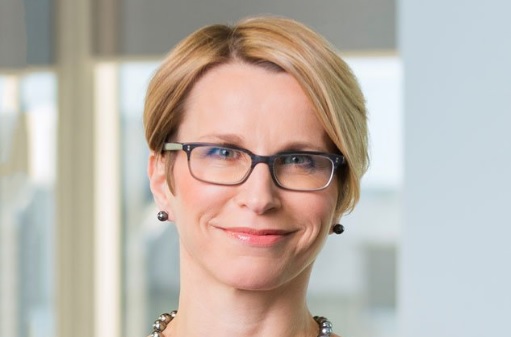
London, United Kingdom | AFP |
British drugs giant GlaxoSmithKline on Tuesday promoted its consumer healthcare head Emma Walmsley to chief executive, a move which will make her the most powerful woman on the FTSE 100.
The 47-year-old, who succeeds outgoing boss Andrew Witty, will become the seventh female chief executive of a group currently listed on London’s benchmark shares index.
However, GSK’s share price finished on a flat note, with analysts noting that some shareholders had wanted an outsider to oversee a radical overhaul of its structure.
The incoming CEO, who joined GSK from French cosmetics giant L’Oreal six years ago and has a background in marketing, will take up her new post in late March.
“Emma is an outstanding leader with highly valuable experience of building and running major global businesses and a strong track record of delivering growth and driving performance in healthcare,” said chairman Philip Hampton in a statement.
Witty will meanwhile retire early next year after almost a decade at the helm.
There are currently six other female-led companies listed on London’s prestigious FTSE 100 index. They include no-frills airline EasyJet and postal operator Royal Mail — who are headed by Carolyn McCall and Moya Greene respectively.
The other four FTSE 100 firms with female bosses are cigarette maker Imperial Brands, home-improvements retailer Kingfisher, leisure group Whitbread and water supplier Severn Trent.
Looking ahead, Walmsley said GSK has “the potential to create meaningful benefits for patients, consumers and our shareholders” thanks to a rise in “medical innovation and trusted healthcare products”.
‘R&D the beating heart’
In an interview posted on the firm’s website, the married mother-of-four added that research and developement (R&D) of new products would remain GSK’s priority under her stewardship.
“R&D is absolutely the beating heart of our company and our success is and will continue to be defined most fundamentally by the strength of our pipeline,” she said.
The Oxford University graduate pointed also to challenges that lay ahead for her company and the sector as a whole.
“Pricing is a key area of focus, government and household budgets are under pressure, the regulatory environment is extremely tough and unpredictable and of course society wants big business and big pharma to continue to close the trust deficit that has been widening,” she said.
However, GSK’s shares closed almost flat on Tuesday, losing 0.03 percent to £16.45 on London’s benchmark FTSE 100 index, which gained a quarter of a percent in value.
“Her appointment is welcome for the diversity it brings to the top of UK business — but was less well-received by GSK shareholders,” noted analyst Jasper Lawler at CMC Markets.
“Some more vocal shareholders had wanted an outsider appointed to help push through a change in GSK’s structure, and are selling shares in a show of disappointment.”
Rapid consolidation
The global pharmaceutical sector has meanwhile undergone major consolidation in recent years as companies battle competition for generic versions of their drugs.
For its part, GSK agreed in 2014 to sell its oncology business to Novartis for $16 billion, while buying the Swiss group’s vaccines division in return.
The pair also formed a joint venture for consumer health products, headed by Walmsley.
Alongside the Novartis deal, the latter part of Witty’s tenure was clouded by Chinese authorities fining GSK the equivalent of almost half a billion dollars in 2014 over alleged bribery.
The firm’s former head of China operations, Mark Reilly, and four other ex-officials were handed suspended prison sentences over the incident.
GSK said details of Walmsley’s pay package would be disclosed next year.
Hampton meanwhile praised Witty for developing “market-leading positions in pharmaceuticals, vaccines and consumer healthcare” which provided “excellent platforms” for growth.
The drugs company employs around 100,000 people worldwide, of which one-tenth work in R&D.
 The Independent Uganda: You get the Truth we Pay the Price
The Independent Uganda: You get the Truth we Pay the Price





